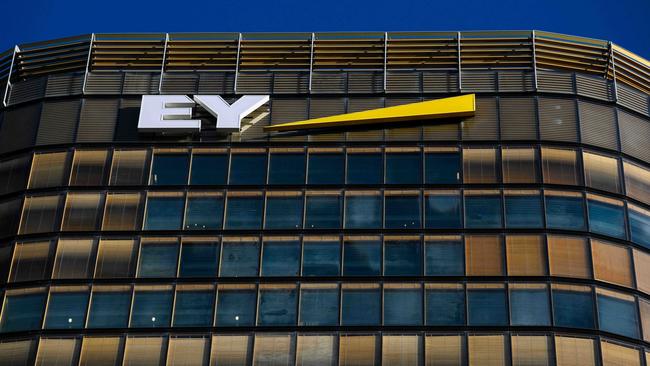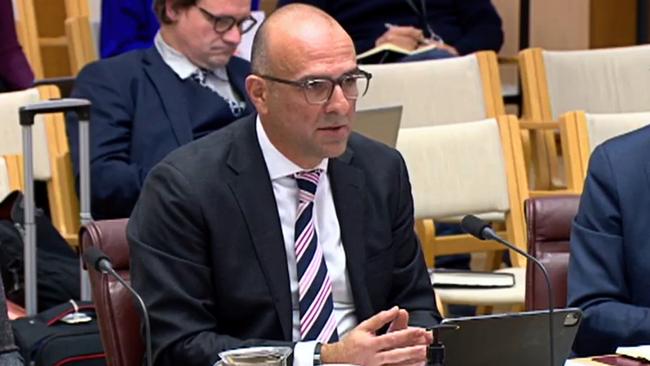
Australian law firm Gilbert+Tobin was subject of a SafeWork NSW probe into long hours worked by staff amid allegations that some were turning to drugs to fight fatigue.
And more recently Twitter boss Elon Musk told staff at the social media platform after a round of mass sackings they needed to be “extremely hardcore” and work long hours to stay.
In recent days, audit firm EY Oceania released an investigation into its workplace culture that again raises the notion of overwork across professional services. The review found a cohort of its staffers work more than 60 hours a week while some “part-timers” regularly work more than 50 hours.

There were examples in the report of EY’s team members working until 3am for a month and others described the culture as “workaholics managing workaholics’’. Some EY staffers with young children felt like they were forced to make a choice around the overwork or their family for their career.
New insights into the drivers of overworking emerged as part of a wider investigation into EY following the death of a young staffer at the firm’s Sydney office in August last year.
The review, led by Elizabeth Broderick and released in recent days, was not intended as a probe into the death of AishwaryaVenkatachalam; it was commissioned by EY to probe deeper cultural issues. It uncovered cases bullying, sexual harassment and experiences of racism at the firm that employs more than 11,000.

For an industry that is long accused of lacking transparency, the Broderick report into EY represents one of the most comprehensive snapshots of high-end workplace culture undertaken into Australia’s professional services industry.
The timing of the Broderick report is significant, given it comes in the midst of a major scandal that is causing rival firm PwC to unravel – a case where a poor corporate culture and chase for profits has been blamed for a tax partner sharing confidential government information with other partners and commercial clients.
And while spending a substantial part of the 180-page report on the issue of overworking, it sheepishly concedes there is little that can be done inside individual companies that is likely to produce a change.
‘Path to promotion’
EY’s situation is not unique in its industry or across other professional services firms like investment banks, law firms and others, where the stakes for staff are high and the financial rewards for some are a big motivator.
A case often cited is a banking intern at Merrill Lynch in London a decade ago who died after working 72 hours straight. The intern was keen to impress his bosses in a bid to secure a full-time job.
And while the problem can be easily identified, solutions are thin on the ground.
In addition to the individual drivers of a culture of overwork is the professional service business model that provides more pressure. This includes billable hours, increasing competition from rival firms, as well as demands from global clients that staff be available 24/7.

Work of a transactional nature driven by big clients can be difficult to predict and control, while audits represent high intensity seasonal work by a specific deadline.
The review said long hours among EY staff can also be traced back to the motivation among staff of promotion and recognition and eventually being named a partner.
The Broderick report found overworking happens mostly in the band of middle management – these staffers are being rewarded but not to the extent of partners. And ironically it was the same managers trying to manage the workload of junior staffers that saw some of the work come back on their own shoulders.
It’s these middle managers that often feel trapped trying to deliver quality work within budget and meet expectations of partners, while also trying to lead their own teams.
In a statement, EY managing partner David Larocca said: “The purpose of this independent review was to enable us to listen and learn so that we can action the feedback. We are determined to ensure EY Oceania is a more respectful and inclusive workplace.”
Larocca said the impact of long working hours is “significant” and taking a heavy toll on the wellbeing of many of the firm’s people.
Going up the management chain, EY’s partners were working some of the longest hours including 80-plus hours a week (12 hours a day across seven days). However they felt they still had sufficient control over the work they did as well as the financial reward to manage the hours.
Some acknowledged that long hours were part of the deal for the big rewards – including the intellectual challenge of a job.
“People who work here know that there is more than a 40-hour work week required, and are here to work hard, get paid well, and solve really hard, important problems for their clients,” one staffer said in the Broderick report.
Input vs output
The Harvard Business Review has examined volumes of research suggesting that a culture of overwork can backfire on companies, with quality of work quickly declining the longer a staffer is on the job. There have been countless studies looking at fatigued emergency doctors as the equivalent of being drunk on the job.
At the same time excessive work leads to increased absenteeism or high rates of staff churn. The Broderick report cited some who were considering leaving EY as a result of the long hours.
For professional services, one study backed by the University of Boston found managers could find no difference in output between staff that actually worked 80 hours and those that were transparent to work less. The study found no evidence that those working longer were actually producing more.
There was an element in the EY report of long working hours also becoming part of the identity of some employees.

“Over time, this belief can become an organisational norm leading to an environment where working long hours is expected regardless of actual productivity,” the report said.
For EY, people working 51 or more hours every week was broadly consistent across state offices and service lines, suggesting that working long hours is a firm-wide dynamic, rather than being driven by external or regulatory factors associated with particular service lines, or unique dynamics created by individual leaders. The issue has become more complicated with always on connections meaning work can be done from anywhere.
The report quoted one unnamed EY partner that he knows that staff often work long hours but the partner felt powerless to do anything about it.
“I do not want them to work those hours and I do not believe they often need to work those hours. There seems however to be a culture that you must be seen to be working hard and it is a badge of honour to be sending emails out of hours. I liken it to what I witnessed … in the late 1980s, where the input is viewed as more valuable than the output.”
johnstone@theaustralian.com.au






Former Telstra boss Sol Trujillo was known for regularly scheduling late-night meetings for his executives that lasted until the early hours of the next morning.